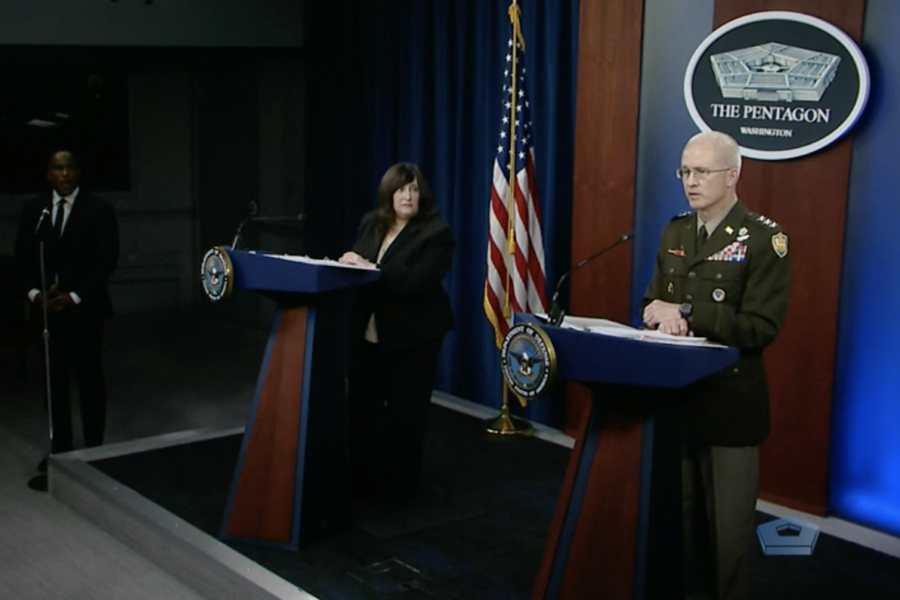Senior military leaders are stepping up efforts to encourage service members to get vaccinated against COVID-19, even as the Defense Department rolls back mask mandates and other regulations.
“The greatest proximate challenge to our nation’s security is coronavirus disease 2019 [COVID-19],” wrote Deputy Defense Secretary Kathleen H. Hicks and Vice Chairman of the Joint Chiefs Air Force Gen. John E. Hyten in a May 20 memo to the force. “The Secretary directed the department to act ‘boldly and quickly’ to defend the force against the disease, and we thank you for taking action to do so. But, the threat of COVID-19 to our nation and our allies and partners has not yet abated.”
Since the beginning of the pandemic, more than 285,000 DOD personnel have been diagnosed with the disease and nearly 350 have died as a result. As of May 20, just 29 DOD personnel were hospitalized with COVID-19—the fewest since June 12, 2020, according to Army Lt. Gen. Ronald J. Place, director of the Defense Health Agency, in a May 20 briefing with reporters.
Some 44 percent of the Active-duty force is now fully vaccinated, and 58 percent have received at least one dose. That’s up from a month ago, when 37 percent of Active-duty service members had received at least one dose, Place said. Since April 19, all DOD personnel, along with their beneficiaries, have been eligible for vaccination.
DOD Vaccination Data
| Army | Marine Corps | Navy | Air Force | Service Member Total* | DOD Civilian ** | |
| Partially vaccinated | 195,195 | 22,357 | 43,877 | 49,298 | 310,727 | 63,029 |
| Fully vaccinated | 220,154 | 75,140 | 223,876 | 204,200 | 723,370 | 235,177 |
“Vaccination is critical to defending against COVID-19,” Hicks and Hyten wrote in the memo. “Used together with testing, hand washing, and other mitigation measures, vaccination can prevent people from getting COVID-19 and keep them from getting seriously ill if they do get the disease.”
The DOD memo encourages commanders to educate troops about the safety and effectiveness of the three vaccines authorized for use by the U.S. Food and Drug Administration. “One initiative that has significantly increased vaccination rates is ensuring that personnel who are uncertain about whether to be vaccinated are able to speak with medical professionals about the benefits of vaccination and the risks of getting COVID-19,” the memo states. “These opportunities enable individuals to ask questions and build confidence before making the choice to get vaccinated.”
Terry Adirim, acting assistant defense secretary for health affairs, said the department is not tracking individuals who decline the vaccine, adding that the rates of members declining likely “reflects what we’re seeing out in the civilian sector.” Adirim said there are no plans to make the vaccine mandatory for DOD personnel for now, while the vaccines are under provisional emergency licenses, but that could happen once the vaccines are fully licensed by the FDA.
When asked if DOD is close to reaching herd immunity, Price reiterated that COVID-19 remains a threat.
“The fact that we’re still having infections every single day in the hundreds, and the fact that we still have 29 people in the hospital, that’s 29 too many,” he said. “So, no, I don’t think we’ve reached a point where our efforts need to stop. Our efforts stop when we’ve eliminated people dying from disease. Our efforts stop when we’ve eliminated people being admitted to the hospital for this disease. Our efforts stop when this stops being a negative aspect to the way that commanders do commander business. I don’t think we’re close to that yet, so that’s why the efforts at every level of the department are still here.”
